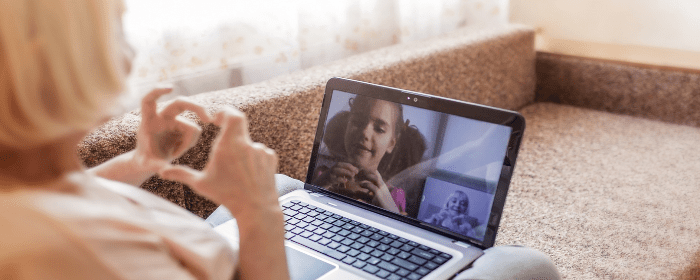Most people are already familiar with what to do to minimize the risk of contracting an airborne virus, from washing hands frequently to staying home and following social distancing protocols, the steps for reducing the outbreak have been made clear since the pandemic first started unfolding.
Yet, what isn’t so clear is how we should maintain mental health throughout these significant changes. From the worries brought on by the disease itself to extreme variations to our normal routine, these challenging times can take a toll on healthy mental wellness. Here’s what you can do to promote mental and emotional wellbeing now.
Stay Connected
We might not be able to exchange hugs or get together with our friends and loved ones, but that doesn’t mean we can’t stay in touch. All across the globe, people are finding creative ways to get some much-needed socialization. While you could always simply call your friends and family, you can also get creative with having a game night over FaceTime or Zoom.
Help Where You Can
Members of elderly and at-risk populations are especially struggling with everyday tasks, like getting groceries and paper products. If you know someone who could use a little assistance, offer to help. Consider placing an online order to have their goods delivered, or offer to pass along any supplies you have in surplus. Helping those in needs can have a positive impact on your mood and mental health.
Maintain a Sleep Schedule
Without your normal routine of leaving the house by a set time, it’s easy for days and nights to slide into one another. Yet, maintaining a regular sleep schedule is important to helping you stay mentally alert and healthy. Try to stick to a regular bed time, and wake up at the same time each morning — even on the weekends.
Limit Alcohol
If you feel as if you could be overindulging in alcohol as a coping mechanism, try to find healthier substitutions instead. Calming techniques such as deep breathing, yoga, and meditation can help you stay relaxed without the risk of developing a dependency.
Eat Well
While you may not have access to the fresh ingredients you’d normally have on hand, you can still make healthy meals at home from frozen, canned, and packaged goods. Eating well can help fuel your body and lift your spirits. Consider using frozen or canned vegetables to add nutrients to your meals. If you can buy protein in bulk, do so and freeze any leftovers. For healthy grains, serve up some lentils, quinoa, or brown rice.
Get Some Exercise
Although gyms are closed, you can still move your body at home or outside. Going for a long walk or jog could be just what you need to clear your head. Or, maybe you’d prefer to switch it up with a sweat-inducing home workout video on YouTube. Even playtime with children or pets might be enough to kickstart the release of endorphins for a quick mood boost.
Cut Back on the News
While it’s important to stay informed about any developments that may pertain to you, it’s also not healthy to be a constant consumer of the news. Reading through troubling statistics and circumstances beyond your control can incite fear and anxiety. Try to limit your news consumption to a limited window each day, then walk away and do something that makes you feel better, such as journaling, having a cup of tea or coffee, or engaging in a favorite hobby.


 St. Petersburg, Florida
St. Petersburg, Florida
